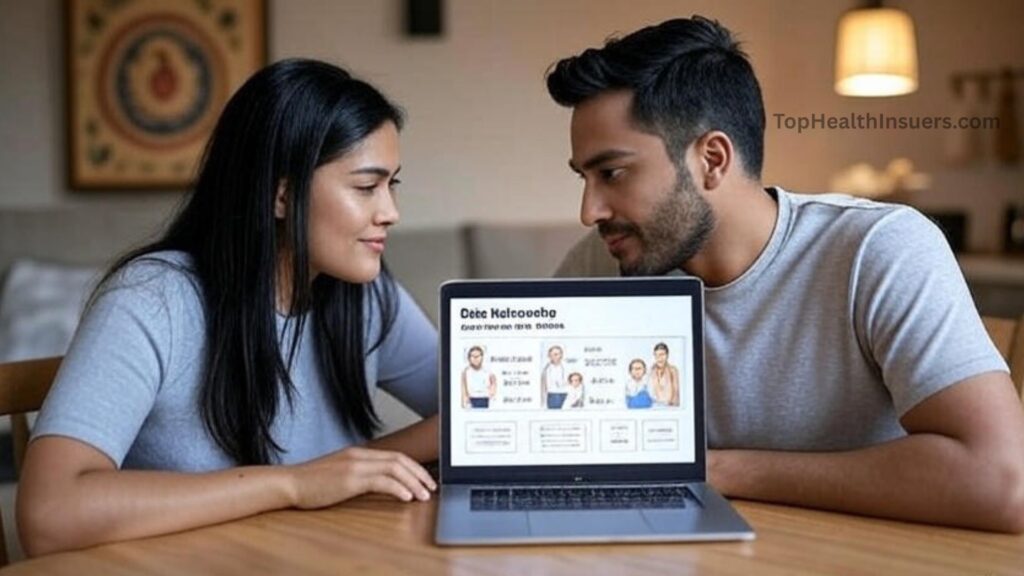Can Immigrants Get Health Insurance in the US?
Navigating the U.S. healthcare system can feel overwhelming—especially for immigrants. Whether you’ve recently moved to the United States or have lived here for years, understanding your health insurance options is essential for protecting both your health and finances.
The good news? Many immigrants can qualify for affordable health coverage, even if they’re not U.S. citizens. From Marketplace plans to Medicaid, CHIP, and emergency care options, this guide breaks down everything you need to know about how immigrants can access health insurance in the United States.
Who Counts as a “Lawfully Present” Immigrant?
To qualify for most health coverage programs, including the Health Insurance Marketplace, you must be lawfully present in the U.S. This term includes a variety of immigration statuses, such as:

- Qualified non-citizens (like green card holders, refugees, or asylees)
- Individuals under humanitarian statuses, such as those with:
- Temporary Protected Status (TPS)
- Special Juvenile Status
- Asylum or refugee status
- Victims of trafficking (T visa holders)
- People protected under the Convention Against Torture
- Non-immigrant visa holders (e.g., student or work visa holders)
- Other legally present individuals, including temporary residents, Family Unity beneficiaries, and those covered by the LIFE Act
👉 You can find the official list of eligible immigration statuses on HealthCare.gov.

Also Read: Can an Agent Help me Enroll in the Right Plan?
Marketplace Health Insurance for Immigrants
If you’re lawfully present, you can apply for health insurance through the Health Insurance Marketplace (also known as Obamacare). Depending on your income, you might qualify for:
- Premium tax credits — to lower your monthly premium costs
- Cost-sharing reductions — to help with out-of-pocket costs like deductibles and copayments
Income-Based Savings
Marketplace savings are based on your household income compared to the Federal Poverty Level (FPL):
| Income Level (as % of FPL) | Possible Benefits |
|---|---|
| Above 400% | May still qualify for some premium tax credits |
| 100%–400% | Eligible for both premium and cost-sharing savings |
| At or below 150% (not eligible for Medicaid/CHIP) | May qualify for a Special Enrollment Period |
| Below 100% (not eligible for Medicaid) | Still may qualify for Marketplace coverage if other criteria are met |
💡 Example:
If you’re a single immigrant earning around $30,000 per year, you may qualify for premium tax credits that significantly lower your monthly health insurance cost—sometimes to less than $100 per month depending on your state.
For more details, check the Federal Poverty Guidelines

Medicaid and CHIP for Immigrants
If you meet your state’s income and residency requirements, you might also qualify for Medicaid or the Children’s Health Insurance Program (CHIP). These programs provide free or low-cost coverage for people with limited income.
Who Qualifies?
You may be eligible if you are a qualified non-citizen, such as:
- A lawful permanent resident (green card holder)
- A refugee or asylee
- A victim of human trafficking
- A Cuban or Haitian entrant
- A battered spouse, child, or parent
- Someone granted withholding of deportation
However, some qualified immigrants must wait five years after obtaining their status before they can receive Medicaid or CHIP benefits. This is known as the five-year waiting period.
Exceptions to the Waiting Period
You don’t need to wait five years if you’re:
- A refugee or asylee
- A green card holder who was previously a refugee/asylee
- A victim of trafficking
- A veteran or active-duty service member (or a family member of one)
Even during this waiting period, you can still apply for Marketplace coverage with financial assistance if you qualify.

Also Read: Does Florida have State-Funded Health Insurance?
Who Is Considered a “Qualified Non-Citizen”?
This category plays a key role in determining eligibility for health benefits. You’re considered a qualified non-citizen if you belong to one of these groups:
- Citizens of the Marshall Islands, Micronesia, or Palau (COFA migrants)
- Green card holders (Lawful Permanent Residents)
- Refugees and Asylees
- Cuban/Haitian entrants
- Individuals paroled into the U.S. for at least one year
- Conditional entrants (granted before 1980)
- Battered immigrants (spouses, children, or parents protected under VAWA)
- Victims of trafficking and their eligible relatives
- People granted withholding of deportation or removal
- Federally recognized American Indians or Alaska Natives born in Canada

Pregnant Women and Children
Some states have eliminated the five-year waiting period for pregnant women and children who are lawfully present in the U.S.
That means if you’re expecting or have children, you may qualify for Medicaid or CHIP right away, even if you’ve been in the country for less than five years.
You can check your state’s specific policies through your state Medicaid agency or visit InsureKidsNow.gov for more information.
Emergency Medical Care for Immigrants
Even if you don’t have an eligible immigration status, you may still get help paying for emergency medical services through Emergency Medicaid—as long as you meet your state’s income and residency rules.
Emergency Medicaid only covers emergency situations, such as:
- Severe injuries
- Life-threatening conditions
- Labor and delivery (in most cases)
However, it doesn’t cover routine care, checkups, or prescription drugs.
If you’re unsure whether you qualify, local community health centers often provide free or low-cost clinics regardless of immigration status. You can find one near you via the HRSA Health Center Finder.
Will Applying for Health Benefits Affect My Immigration Status?
One of the biggest worries immigrants have is whether getting public health benefits will hurt their chances of becoming a permanent resident or U.S. citizen.
The good news? Applying for or receiving Medicaid, CHIP, or Marketplace savings will NOT make you a “public charge.”
This means:
- It won’t hurt your green card application
- It won’t affect citizenship or naturalization
- It won’t cause immigration penalties
🚨 Exception:
Only if you receive long-term institutional care (like a government-funded nursing home stay) could it potentially impact your green card process.
For up-to-date information, see the official USCIS Public Charge page.
Tips for Immigrants Applying for Health Insurance
Here are a few expert tips to make your enrollment process smoother:
- Gather documents early. You’ll need proof of immigration status, income, and residency.
- Apply during Open Enrollment. This period typically runs from November to January, though you may qualify for a Special Enrollment Period.
- Use an authorized agent or navigator. Licensed professionals can help you understand your options—for free.
- Compare plans carefully. Don’t just look at premiums; consider deductibles, provider networks, and prescription coverage.
- Keep your information up to date. If your immigration or income status changes, report it immediately to avoid losing coverage.
Common Mistakes to Avoid
- ❌ Assuming you’re not eligible because you’re not a citizen. Many non-citizens qualify.
- ❌ Missing the enrollment deadline. Set reminders for the Open Enrollment period.
- ❌ Not checking state rules. Every state has slightly different Medicaid and CHIP guidelines.
- ❌ Ignoring community clinics. If you can’t afford insurance, community clinics provide affordable care regardless of status.

Also Read: What’s Covered Under Preventive Care?
Conclusion: Health Care Access for Immigrants Is Possible
Immigrants play a vital role in the U.S. economy—and deserve access to affordable healthcare like anyone else. Whether through Marketplace coverage, Medicaid, CHIP, or emergency care, there are legitimate paths to protect your health and financial well-being.
Don’t let confusion or misinformation hold you back. Explore your options, verify your eligibility, and take advantage of available programs to secure the coverage you and your family need.
Frequently Asked Questions (FAQs)
Q1. Can undocumented immigrants buy health insurance in the U.S.?
Undocumented immigrants cannot buy Marketplace insurance, but they can get emergency Medicaid in certain states and receive care from community health centers.
Q2. Can green card holders get Medicare?
Yes, but typically only after living in the U.S. for at least five years and meeting age or disability requirements.
Q3. Are DACA recipients eligible for health insurance?
As of 2025, DACA recipients (Deferred Action for Childhood Arrivals) are generally not eligible for federal Marketplace coverage, though some states offer alternatives.
Q4. How can immigrants find affordable health care if they’re ineligible for Medicaid?
They can explore Marketplace plans, short-term insurance, or community health clinics offering sliding-scale fees.
Q5. Will enrolling in health coverage affect my visa or citizenship application?
No, enrolling in Marketplace, Medicaid, or CHIP does not make you a public charge or harm your immigration status.

Post Comment